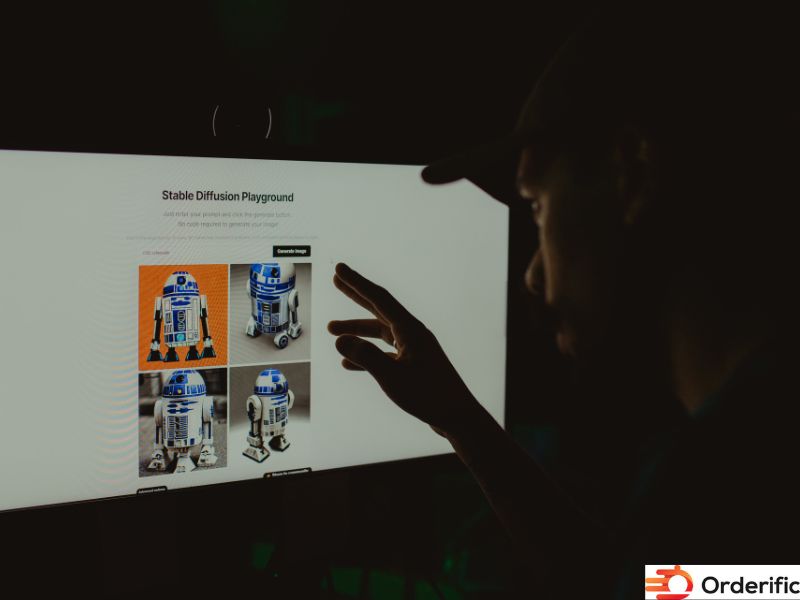Introduction
In the rapidly evolving world of event planning, the event management software market is taking center stage, transforming how event planners coordinate and execute events. This management software revolutionizes the entire event lifecycle, from planning to marketing and registration. As the industry expands, particularly in North America and Asia Pacific regions, advancements like virtual events and virtual reality are becoming integral components. Event professionals are seeking inventive ways to captivate attendees and streamline event organization. With the rise of companies like Aventri Inc. and New Work SE, the software provides a comprehensive event management solution. This article delves into the thrilling future trends of event management software, a crucial tool for any event organizer.
8 Emerging Event Industry Trends (2024-2026)

1. Hybrid Events Continue To Grow
In the event management software market, hybrid events are swiftly gaining traction. These events, a blend of traditional in-person gatherings and virtual components, allow for a broader reach and increased accessibility. As event professionals seek to engage a global audience, event management software is evolving to integrate tools tailored for these hybrid experiences. Virtual reality, for instance, is being utilized to offer immersive experiences to remote attendees.
North America, with its advanced event technology, leads in the adoption of this trend while the Asia Pacific region is catching up rapidly. Aventri Inc and New Work SE are leading companies delivering solutions that seamlessly manage hybrid event planning and execution. With these software, event planners can coordinate both physical and virtual event aspects, from event marketing to event registration, creating a superior experience for attendees.
The role of the event organizer is expanding to embrace this hybrid model, demanding a deeper understanding of the event management software and its capabilities. Event planners operating in regions from the United States to South America are leveraging this management software to cater to a diverse audience.
As the world continues to navigate the complexities of global events, hybrid events will undoubtedly continue to shape the trajectory of the event management software market. Through this strategy, event planners are not only optimising their reach but also offering attendees the flexibility to engage on their terms, cementing the position of hybrid events in the future landscape of event management.
2. Events Become An Important PR Tool
Driven by the expanding event management software market, events are increasingly being recognized as effective Public Relations (PR) tools. For organizations, hosting events offers a unique opportunity to hone their brand image, establish thought leadership, and foster strategic relationships. Event management software, with its comprehensive suite of tools, simplifies the planning, execution, and evaluation of such events.
Event planners in North America and Asia Pacific are leveraging this software’s capabilities to ensure successful event management. They are using it to manage guest lists, streamline event registration, and engage attendees through interactive sessions. As the role of software in event planning continues to grow, event professionals are developing a deeper understanding of its functionality.
In the realm of PR, event marketing plays a critical role. Advanced tools in event management software are enabling event organizers to create targeted marketing strategies, enhancing event visibility and attendee turnout. Further, the ability to capture and analyze attendee data is providing invaluable insights, facilitating a more personalized and engaging event experience.
Emerging trends such as virtual events and the use of virtual reality are being seamlessly integrated into modern event management practices, offering enhanced experiences for attendees. Companies like Aventri Inc and New Work SE are at the forefront of these innovations, providing robust solutions for both physical and virtual event management.
3. Events Enter A Year-Round Event Cycle
Year-round event cycles are emerging as a vital part of the event management software market. With the increasing demand for continuous engagement, event planners are moving away from one-off events and embracing a 365-days strategy. This approach allows constant interaction with attendees, fosters better relations, and yields more valuable insights for future improvements. In this model, the event essentially never ends – it transitions into different phases of interaction. The management software plays a pivotal role in efficiently navigating this continual cycle, offering tools that enable continuous engagement, communication, and evaluation.
Moreover, the year-round event cycle also necessitates the integration of virtual events, allowing attendees to remain connected irrespective of geographic constraints. With software from companies like Aventri Inc and New Work SE, event planners can create engaging online content and interactive sessions that keep the audience hooked even outside the physical event. As this trend gains momentum, it’s inevitable that the year-round event cycle will become an integral part of the future event management landscape.
4. Professionals Use Events To Help Them Upskill
Events are progressively being considered as a key platform for professional development. The event management software market is responding to this trend by integrating features that facilitate educational and skill-building sessions. Besides networking and brand building, events now offer learning opportunities for attendees to uplift their skill set and industry knowledge. This is especially noteworthy within industries that experience fast-paced innovation and change, such as technology and healthcare.
Event management software is supporting this upskilling trend by providing tools for interactive learning sessions, webinars, and workshops. For example, tools like Q&A, real-time polls, and quizzes are being incorporated in events to enhance the learning experience. Companies like Aventri Inc and New Work SE are spearheading this trend, offering innovative solutions to help event planners create an enriching environment where professionals can grow.
Event planners, leveraging the capabilities of event management software, are increasingly focusing on curating content that adds value to professionals’ careers. This shift towards learning-focused events is contributing significantly to the growing event management software market, and is projected to continue in the years to come. In essence, events are evolving into a dynamic space for knowledge sharing and professional enhancement.
5. Emphasis On Transformational Experiences
The event management software market is witnessing a rising emphasis on creating transformational experiences at events. More than just entertainment, event attendees today seek moments that inspire change, evoke emotions, and leave a lasting impact. This shift in attendee expectations is directly challenging event professionals to think beyond the conventional and curate innovative, immersive experiences. Event management software is key in this transformation, providing the tools necessary to design, execute, and measure these experiences effectively. For instance, virtual reality is being used to create immersive environments that transport attendees to different worlds, while gamification is being implemented to make events more interactive and engaging.
Companies like Aventri Inc and New Work SE are enabling this shift towards transformational experiences with their robust software solutions. As this trend continues to gain traction, it’s clear that the creation of transformational experiences will become a fundamental component of event planning and execution, shaping the future of the event management software market.
6. Renewed Emphasis On Physical And Virtual Safety
In today’s scenario, event safety has taken on a whole new connotation as the event management software market is renewing focus on both physical and virtual safety. As events transition between physical, virtual, and hybrid models, event planners are recognizing the need to ensure attendee safety in all environments. Physical safety measures, such as crowd control, emergency protocols, and health guidelines, remain vital for in-person events.
However, the rise of virtual and hybrid events has brought forward the importance of data security and privacy. In the digital realm, attendee data protection becomes critical, making software with robust security features a must-have tool for event planners. Advanced software solutions, like those offered by Aventri Inc and New Work SE, are incorporating features that protect sensitive data and safeguard against cyber threats, ensuring a secure virtual event experience.
Moreover, attendees are becoming increasingly conscious of their safety rights at events, further emphasizing the role of safety in successful event management. As these trends continue, the future of the event management software market undoubtedly lies in its ability to provide tools and solutions that ensure comprehensive safety, be it physical or virtual.
7. More Data Collection During And After Events
The event management software market is increasingly recognizing the importance of data collection during and after events. This trend reflects the growing acknowledgement of data as a key driver for decision-making and strategy formulation in event planning. Event management software, equipped with data analytics tools, enables event planners to gather extensive insights about attendee behavior, engagement levels, and feedback. Tools like live polling, digital surveys, and social media analytics are being integrated into these software, facilitating comprehensive data collection. Companies like Aventri Inc and New Work SE are leading the way, offering advanced software that supports robust data collection and analysis. This trend is paving the way for more informed and strategic event management, setting the stage for the future of the event management software market.
8. Increasing Investments In Event Technology
With the growing recognition of the power of events in the business and marketing world, there’s a marked rise in investments within the event technology sector. The event management software market is undoubtedly a significant beneficiary of this trend. Stakeholders are investing heavily in innovative tools and technologies to streamline event processes and enhance attendee experiences.
Digital tools like artificial intelligence, virtual reality, and augmented reality are seeing increased adoption to create more immersive and interactive experiences at events. Additionally, software solutions that offer robust data analytics capabilities are garnering significant attention. These tools allow event planners to tap into meaningful insights, enabling them to make data-driven decisions and optimize event outcomes.
Investments are also being directed towards ensuring the safety and security of events. With a growing focus on data protection, event management software with enhanced security features are gaining traction within the industry.
Companies like Aventri Inc and New Work SE are prime examples of firms that are leveraging these investment trends, continually innovating their software solutions to cater to the evolving needs of the event industry. So, As these trends continue, it’s clear that technology will remain at the heart of the event management industry, shaping its future dynamics.
From a broader perspective, these investments signify the industry’s commitment to innovation and adaptability. Hence, They reflect the event industry’s resilience and its readiness to embrace change and new challenges, setting an optimistic tone for the future of the event management software market.
Conclusion
The future of event management hinges significantly on the innovative advancements in event management software. As we’ve discussed, trends such as hybrid events, increased usage of events as PR tools, the dawn of year-round event cycles, events as platforms for upskilling, a rising emphasis on creating transformational experiences, a renewed focus on physical and virtual safety, increased data collection, and greater investments in event technology all stand to redefine the landscape of the event management software market. Companies like Aventri Inc and New Work SE lead the way, providing comprehensive solutions that cater to these emerging trends, making event planning and execution more efficient and effective than ever before.
So, by embracing these changes, event planners can remain at the forefront of their field, providing exciting and engaging experiences for their audiences. Hence, if you’d like to stay ahead of the curve and leverage these trends for your events, consider booking a demo with Orderific, where you can explore how our event management software can elevate your event planning to the next level. Let’s see how Orderific evolves your business today.
FAQs
Why is it important for event organizers to stay updated on current software trends?
Staying current on software trends allows event organizers to improve efficiency, attendee engagement, and overall event experience.
What are some emerging trends in event management software that are gaining traction?
Emerging trends include hybrid events, year-round event cycles, upskilling through events, emphasis on transformational experiences, focus on safety, and augmented data collection.
How can software trends impact the efficiency and success of event planning and execution?
Software trends can enhance event planning efficiency and success by streamlining tasks, improving attendee engagement, and providing valuable insights for future improvements.
Are there specific industries or types of events that benefit more from the latest software trends?
Industries experiencing rapid change, like technology and healthcare, and large-scale events benefit most from the latest software trends.
How can event organizers adapt their strategies to incorporate evolving software trends for optimal results?
Event organizers can adapt their strategies by continually learning about evolving software trends, integrating features into events, and leveraging data for continuous improvement.













